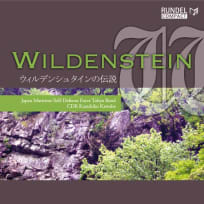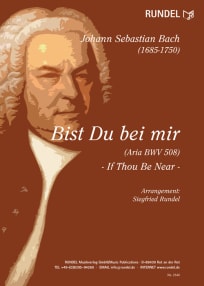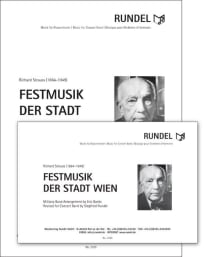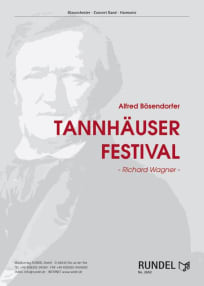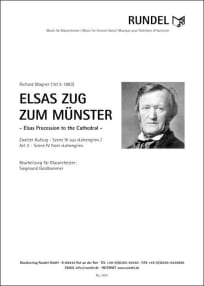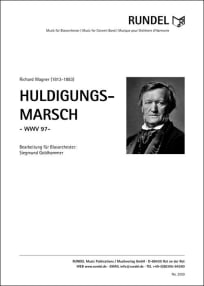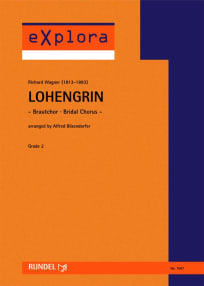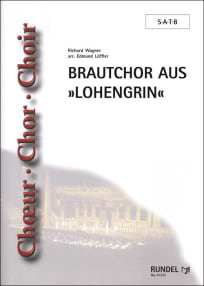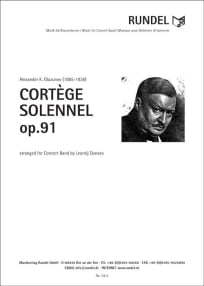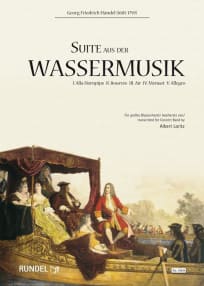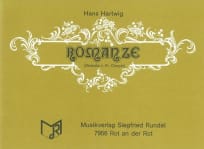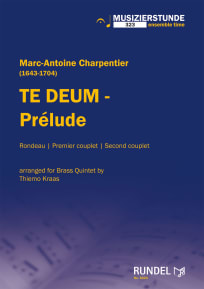Concert Band
Sei uns gegrüßt
Festmusik zum Empfang des Königs Friedrich August (1844)
WWV 71a
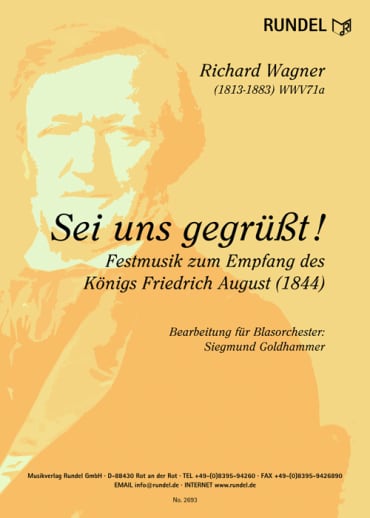
Concert Band
Sei uns gegrüßt
Festmusik zum Empfang des Königs Friedrich August (1844)
WWV 71a
Composer
Arranger
Occasion
Performance time
00:04:10
Grade Level
Mittelstufe
Publisher
Rundel
Size
A4
Info
Full Score + Parts
Order Number
MVSR2693
Release Date
2013
Info
Richard Wagner wrote this festive composition in early April, 1844 in just few days after hearing King Frederick Augustus II of Saxony had returned from England. This action by his own authority offended Wagner’s superiors, the Baron of Luettichau and the musical director Karl Reissiger, but he calmed the waves by leaving the premiere conducting to Reissiger – Wagner himself sang in the choir. According to Wagner’s notes, 300 singers and 120 musicians performed the premiere in Pillnitz on August 12. Other sources mention 200 singers and 106 musicians. Whatever number may be right, the size of the choir and the orchestra must have been impressive and so the performance. It is striking that Wagner composed his homage to the King as an original work for wind instruments and male choir. This piece is more evidence that the master composer understood and used the wind orchestra’s potential. The advantages of a wind orchestra as compared to a symphony orchestra were apparently obvious back then, especially at open air performances. Wagner also liked the strong sound of wind instruments. Another interesting fact is that he never wrote an edition of this piece for symphony orchestra, just a version for one singer and piano. It seems like Wagner was of the opinion that an orchestral rendition of this work had to employ a large wind orchestra. In his autobiography, Wagner called the day of the premiere "the most beautiful summer day I can remember in my whole life".
Keywords
RUNDEL Promo-Katalog 2013
dynamisch
Richard Wagner
19th century / 1800 / 1900
Arrangement / Transcription
Arrival
Classical Music
Dresden
festive
German composers
happy / joyful
King / Queen
New Year's Concert
New Year's Eve concert
Nobility
Orchestral Transcriptions
royal
RUNDEL YouTube Channel
solemn
symphonic
Listen & read from the Rundel YouTube Channel
RUNDEL VIDEO
Sei uns gegrüßt
Notes available at:
https://www.rundel.de/en/
Festmusik zum Empfang des Königs Friedrich August (1844)
WWV 71a
Richard Wagner wrote this festive composition in early April, 1844 in just few days after hearing King Frederick Augustus II of Saxony had returned from England. This action by his own authority offended Wagner’s superiors, the Baron of Luettichau and the musical director Karl Reissiger, but he calmed the waves by leaving the premiere conducting to Reissiger – Wagner himself sang in the choir. According to Wagner’s notes, 300 singers and 120 musicians performed the premiere in Pillnitz on August 12. Other sources mention 200 singers and 106 musicians. Whatever number may be right, the size of the choir and the orchestra must have been impressive and so the performance. It is striking that Wagner composed his homage to the King as an original work for wind...
https://www.rundel.de/en/
Festmusik zum Empfang des Königs Friedrich August (1844)
WWV 71a
Richard Wagner wrote this festive composition in early April, 1844 in just few days after hearing King Frederick Augustus II of Saxony had returned from England. This action by his own authority offended Wagner’s superiors, the Baron of Luettichau and the musical director Karl Reissiger, but he calmed the waves by leaving the premiere conducting to Reissiger – Wagner himself sang in the choir. According to Wagner’s notes, 300 singers and 120 musicians performed the premiere in Pillnitz on August 12. Other sources mention 200 singers and 106 musicians. Whatever number may be right, the size of the choir and the orchestra must have been impressive and so the performance. It is striking that Wagner composed his homage to the King as an original work for wind...


